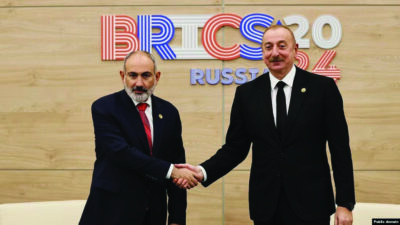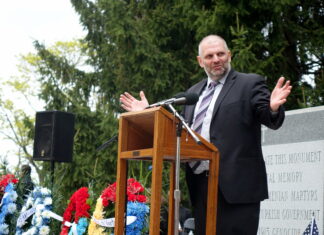By Taner Akçam
Special to the Mirror-Spectator
The question I would like to ask here is very simple: As we all know, President Biden has recognized the Armenian genocide. So….that’s a good thing, you say? And now that he has acknowledged it…what of it? Has anything changed? And if, in fact, nothing has changed, why hasn’t it changed? And if nothing has changed, why was so much effort put into making it happen? So then, what does have to be done? These questions beg dozens more; we could go on forever asking questions like these. There is a much more dramatic dimension to the matter. We were all certain that “recognition of the Armenian Genocide by the US government” would be the end-all and be-all for diaspora Armenians. I would even go further and suggest that the outstanding issue of “recognition” was the central component of Armenian diaspora identity. For decades, the Armenian diaspora defined itself through this concern and the demand for recognition was like a glue holding it together. And now, with the attainment of the goal, what is to become of this central component, this element that has been so central in shaping Armenian diaspora identity? The most significant identity marker for the Armenian diaspora has now lost its energizing power, its raison d’etre. What, if anything, will replace it as a rallying cry, as a definer of Armenian identity outside of Armenia? Frankly, I have no ready answers to these questions; thus, the title of my talk: “The Need for a New Conversation.”
The first issue that I would like to touch upon is that the lack of any substantive change in the wake of Biden’s recognition pushes us to ask what exactly is ‘recognition’. Is it just lip service? A low-cost political sop? Does it have any more weight than simply saying that “Yes, some bad things happened in 1915,” if we continue, in the wake of our “never again” moment, to do such things in the future. If that is the case, then ‘recognition’ can be likened to attending church services. We may sincerely repent of our sins on Sunday, but nevertheless go back to sinning on Monday. But of course, things have to change; individual sins are not the same thing as great historic crimes; such practices cannot be allowed to continue if any semblance of civilized society is to survive. And a “recognition of an historic injustice” should be accompanied by consequences. But what are these consequences? And whence will come the impetus to move in this direction?
The question lends itself to a variety of answers. One of the possible responses lies in the complex logic of international relations. As I will mention at greater length below, nation-states operate from the starting point of national interest and security concerns, and they work within the military and financial means available to them to secure for themselves the most favorable results from within the wild and anarchic condition of international relations. And you can well imagine that the Armenian Genocide and questions as to whether its recognition by enough other powers will ultimately pressure Turkey to acknowledge the genocide itself do not receive much attention in these complicated and changing relations. The Republic of Armenia may have been the only country with the ability to bring the subject to the public agenda, but it has little leverage to press its case, as its combination of political and military weakness and precarious geopolitical position put its very existence at risk.
But let us leave aside the world of international relations for a moment and to seek elsewhere the reasons why Biden’s recognition of the genocide will not change a thing. There is a misconception regarding both denial and recognition, and we see this misconception manifest itself in international relations as well, one that I would refer to as temporal compartmentalization.









